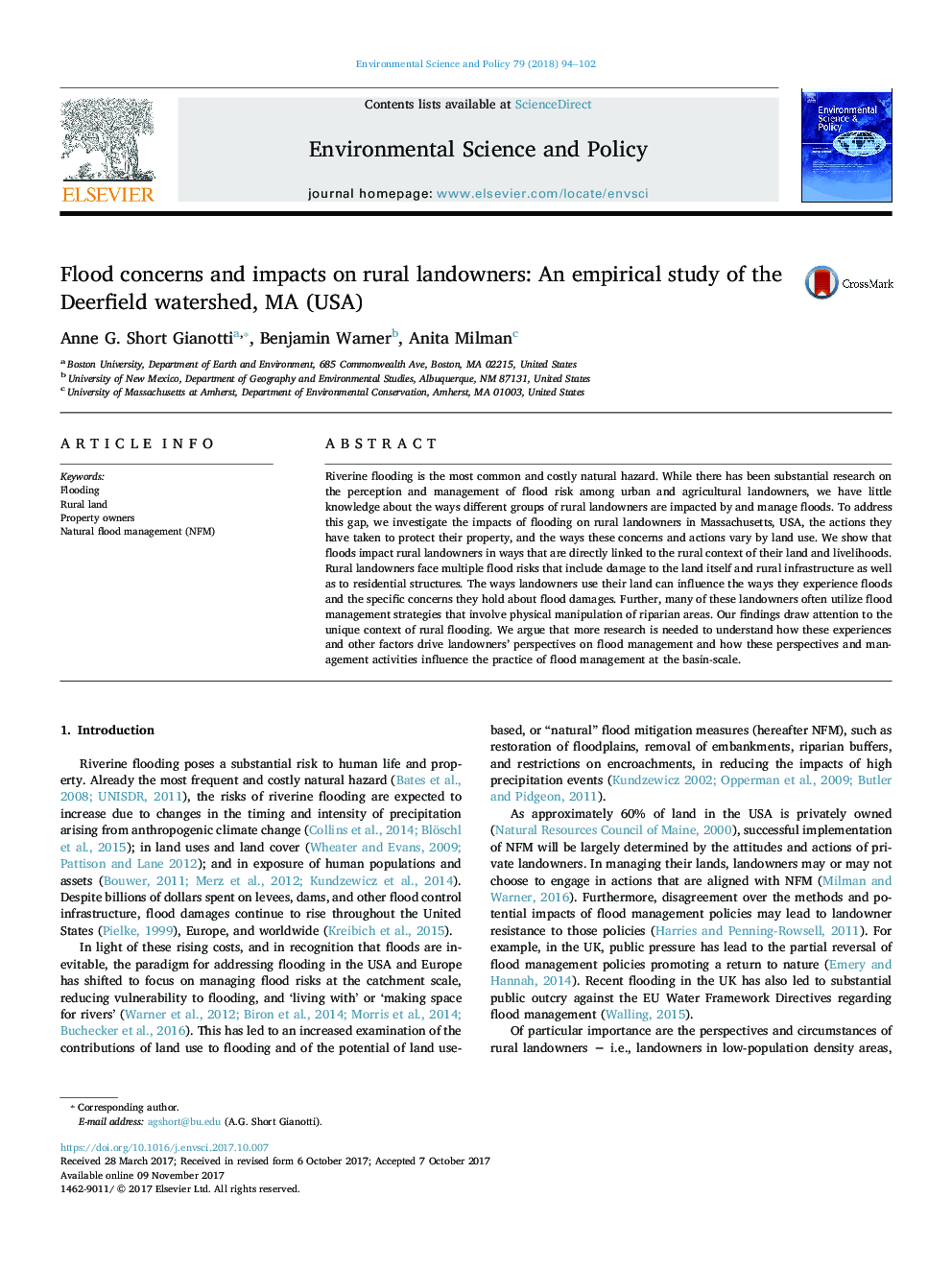| Article ID | Journal | Published Year | Pages | File Type |
|---|---|---|---|---|
| 7466361 | Environmental Science & Policy | 2018 | 9 Pages |
Abstract
Riverine flooding is the most common and costly natural hazard. While there has been substantial research on the perception and management of flood risk among urban and agricultural landowners, we have little knowledge about the ways different groups of rural landowners are impacted by and manage floods. To address this gap, we investigate the impacts of flooding on rural landowners in Massachusetts, USA, the actions they have taken to protect their property, and the ways these concerns and actions vary by land use. We show that floods impact rural landowners in ways that are directly linked to the rural context of their land and livelihoods. Rural landowners face multiple flood risks that include damage to the land itself and rural infrastructure as well as to residential structures. The ways landowners use their land can influence the ways they experience floods and the specific concerns they hold about flood damages. Further, many of these landowners often utilize flood management strategies that involve physical manipulation of riparian areas. Our findings draw attention to the unique context of rural flooding. We argue that more research is needed to understand how these experiences and other factors drive landowners' perspectives on flood management and how these perspectives and management activities influence the practice of flood management at the basin-scale.
Keywords
Related Topics
Physical Sciences and Engineering
Energy
Renewable Energy, Sustainability and the Environment
Authors
Anne G. Short Gianotti, Benjamin Warner, Anita Milman,
